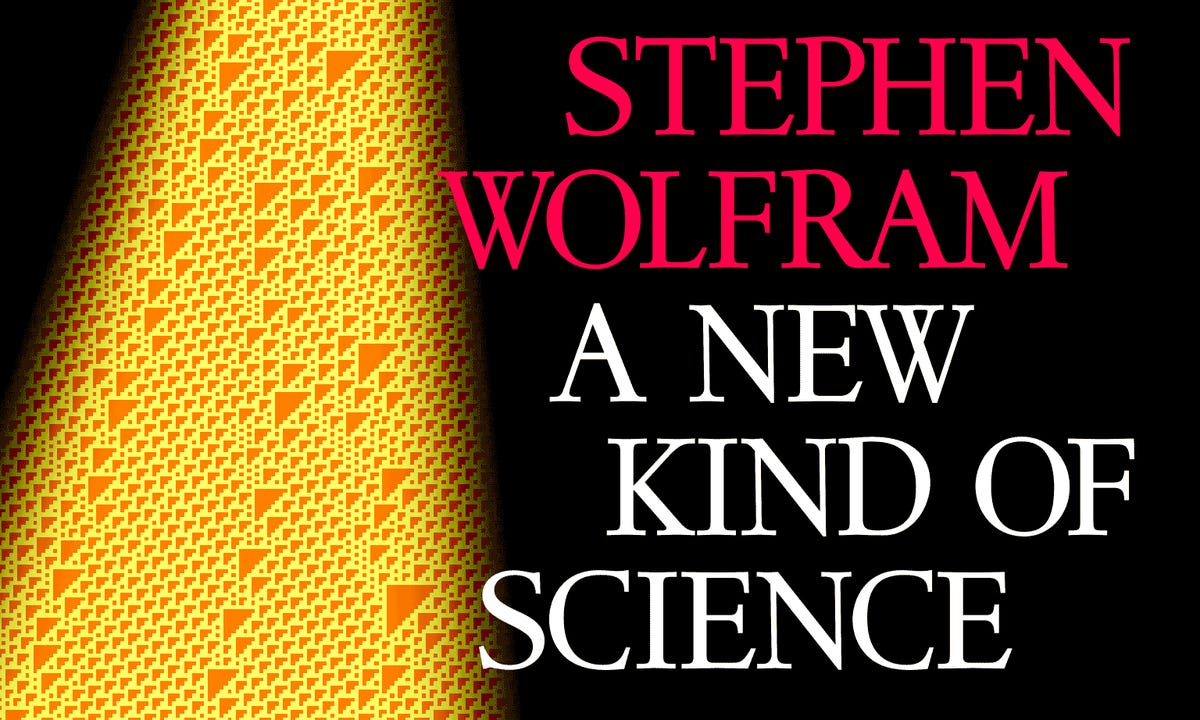An update on Wednesday night brought Retina display support to the iPad e-book app of “A New Kind of Science,” Stephen Wolfram’s mammoth tome on mathematics, computing, cellular automata, and the nature of the universe.
Ordinarily, you’d think that would be a good thing. But for this particular project, it reveals how much more needs to be done to really meet the potential.
NKS, as it’s called for short, embodies decades of Wolfram’s work. An entire business — Wolfram Research’s Mathematica software for mathematical analysis and visualization — grew out of a mere side project to support the work. So did the new Wolfram Language effort to make much of the world programmable. Wolfram has a remarkable vision of computation and interactivity.
Unfortunately, that very vision makes the company’s e-book look static and limited.
The Retina support is welcome, but late. The 1,197-page paper version of “A New Kind of Science” required special printing techniques to accommodate its high-resolution imagery, so it’s surprising that NKS got Retina support almost two years after the iPad starting offering all those pixels. (Mathematica also doesn’t support high pixel densities, though we can expect that to change with the next major release.)
The high-res graphics and text in the $10 iPad app are indeed now much better to look at. So what’s missing? Two things.
First, the e-book app is missing some of the really useful attributes of e-books. It doesn’t reliably remember your position in the book, you can’t bookmark pages or highlight text or annotate passages, and the font is fixed at a one fairly small size. Wolfram Research had some good reasons to avoid mainstream e-book software like Amazon’s Kindle, but that choice comes at a price.
Second, the book is held back by being anchored to its past. Its page numbers, text layout, and formatting correspond to the page numbers of the physical book and the Web-based version of NKS (which also doesn’t support Retina or HiDPI displays, by the way).
But if ever there was a book that would benefit from a liberation from the static confines of paper, it’s NKS. The illuminating colors, animated graphics, and programmability of Mathematica itself show exactly what’s possible.
It would take a major effort to fully modernize “A New Kind of Science,” and Wolfram’s actions so far indicate that the book is not a top priority compared with the Wolfram Alpha “knowledge engine,” Wolfram Language, and spreading Mathematica to new devices like Intel’s Galileo and the tiny Raspberry Pi computers.
That’s fine. But it’s also a shame, because making NKS interactive would bring it to life.
Literature consisting of nothing but text and maybe some illustrations has a robust future, I believe. But e-book publishing of the future also will incorporate video, audio, touch, interactivity, and more as it incorporates the lessons of Wikipedia, Khan Academy, and the Web.
“A New Kind of Science” could chart a course to that future to that new kind of book.


screenshot by Stephen Shankland/CNET



